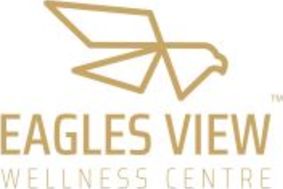






Eagles View Wellness Centre
Verified Center
This provider's information has been quality-checked by Recovery.com's Research Team for accuracy and completeness, including center verification through appropriate third-party organizations.
Treatment Focus
This center treats substance use disorders and co-occurring mental health conditions. Your treatment plan addresses each condition at once with personalized, compassionate care for comprehensive healing.
Primary Level of Care
Offering intensive care with 24/7 monitoring, residential treatment is typically 30 days and can cover multiple levels of care. Length can range from 14 to 90 days typically.
Treatment Focus
This center treats substance use disorders and co-occurring mental health conditions. Your treatment plan addresses each condition at once with personalized, compassionate care for comprehensive healing.
Primary Level of Care
Offering intensive care with 24/7 monitoring, residential treatment is typically 30 days and can cover multiple levels of care. Length can range from 14 to 90 days typically.
Private Pay
You pay directly for treatment out of pocket. This approach can offer enhanced privacy and flexibility, without involving insurance. Exact costs vary based on program and length of stay. Contact the center for specific details.
Eagles View Wellness Centre
Eagles View Wellness Centre
About Eagles View Wellness Centre
Eagles View Wellness Centre treats addiction and co-occurring mental health conditions with multiple levels of evidence-based care. They deeply commit to enhancing holistic well-being and delivering comprehensive care to individuals seeking to improve their mental, emotional, and physical health. They provide detox, residential treatment, and outpatient care with a focus on supportive sober living and on-site outpatient care. Eagles View Wellness Centre’s multidisciplinary team treats substance and process addictions with integrative care at the heart of their treatment philosophy. Their commitment to helping individuals stems from the recognition that traditional methods may not work for everyone.
Multidisciplinary Team Providing Evidence-Based Care
Eagles View Wellness Centre’s team includes an on-staff psychiatrist and psychologist, a social worker, occupational therapists, art therapists, addiction counsellors, and a dietician. Each works with clients on a group and individual level, with comprehensive assessments to understand each client’s needs, preferences, and aspirations. Clients receive group therapy, family therapy, and 1-2 weekly 1:1 sessions. Eagles View Wellness Centre believes well-being results from a harmonious balance between the mind, body, and spirit. To achieve this, they combine a range of evidence-based and alternative therapies, including:
•Cognitive behavioral therapy (CBT)
•Dialectical behavioral therapy (DBT)
•Trauma-specific therapy
•Solution-focused therapy
•Mindfulness
•Optional twice-weekly 12-Step meetings
Recovery from Addiction And Co-Occurring Conditions
Eagles View Wellness Centre treats substance addiction and process addictions, including gambling, sex/love, stress and burnout, and self-harm. They address co-occurring mental health conditions like depression, personality disorders, suicidal thinking, grief/loss, PTSD/C-PTSD, and eating disorders. Long-term recovery is a core focus of their treatment philosophy. To support long-term healing and growth, they provide essential tools, resources, and support mechanisms, including coping skills, relapse prevention strategies, and connections to local resources. Clients can also enjoy activities like hot air ballooning, hikes, and golfing, plus visits to an elephant sanctuary, a day spa, Lion Park, and Cradle of Humankind.
Clients may use their cell phones in specified times on Monday, Wednesday, Friday, Saturday, and Sunday.
Enriching and Inspiring Excursions
Eagles View Wellness Centre plans safe, supportive, and educational excursions to enrich clients’ recovery journeys. Their carefully crafted excursions aim to promote self-reflection, appreciation for life, and allow clients to connect with the wonders of the world. Eagles View Wellness Centre’s outings to South African experiences and landmarks include visits to an elephant sanctuary, the Lion Park, The Cradle of Humankind, and exploring Soweto Johannesburg. Outings offer a break from daily routines and help clients form life-long memories that motivate and inspire.
Sober Living And Aftercare
Eagles View Wellness Centre greatly emphasizes aftercare to support individuals beyond their treatment program. Their discharge and aftercare planning involve creating a comprehensive and individualized plan that includes resources, support networks, and strategies to maintain well-being. They additionally offer an on-site Secondary Program to help clients transition between treatment and independent living. Clients can live in their safe, supportive sober living as they transition from residential treatment to outpatient.
Eagles View Wellness Centre additionally offers an on-site outpatient program with flexible scheduling options for therapy, counseling, and support services. With a Secondary Program, sober living, and an Outpatient program, Eagles View Wellness Centre offers a comprehensive continuum of care.

Highlights from the Center
Highlights
These highlights are provided by and paid for by the center.
Therapeutic Location
Budget Friendly
Eating Disorders Program
Addiction Recovery
Center Overview
Treatment Focus
This center treats substance use disorders and co-occurring mental health conditions. Your treatment plan addresses each condition at once with personalized, compassionate care for comprehensive healing.
Pricing and Program Length
Estimated Center Costs
The cost listed here ($7000 - $10,000), is an estimate of program cost. Center price can vary based on program and length of stay. Contact the center for more information. Recovery.com strives for price transparency so you can make an informed decision.
Meet Your Care Team

Hennie Schreuder
Founder

Marius Swart
Program Director

George Gorgas
General Manger

Dr. Tau
Psychiatrist
FC Psych SA

Alta Schreuder
Pharmacist

Dr. Moodley
General Practitioner

Dr. Susan Reynolds
Psychologist
MA, HPCSA - Couns. Psych
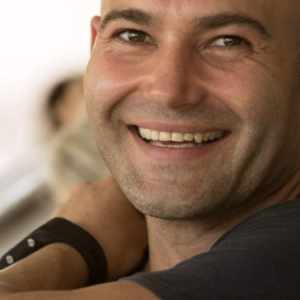
Zane
Psychologist
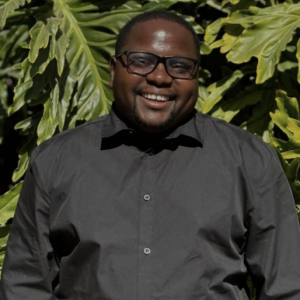
Tirelo Magane
Occupational Therapist
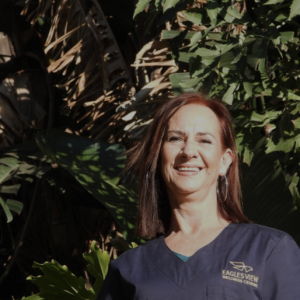
Vanessa Oeschger
Addiction Counselor

Lebogang Mokgatle
Drama Therapist

Sanelisiwe Mokgatle
Counselor

Brian Tucker
Outpatient Facilitator and Addiction Counsellor
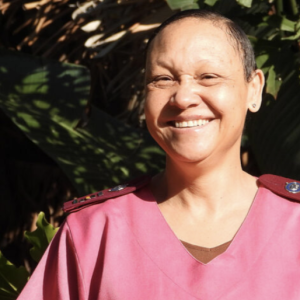
Nicholet Golden
Senior Nurse
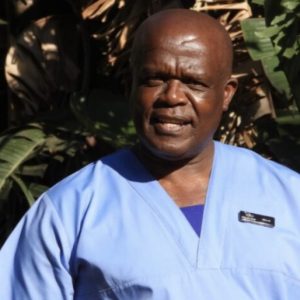
Sello Nthite
Nurse
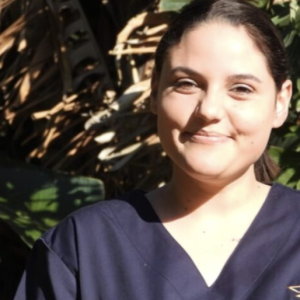
Shehkira Guerini
Office Admin
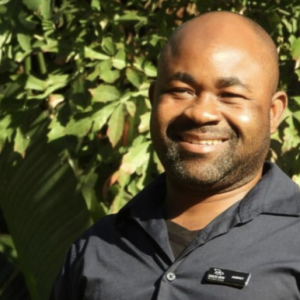
Aubrey Chalera
Maintenance Manager
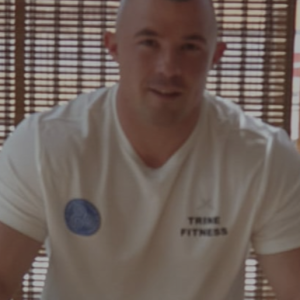
Leo Vorster
Personal Trainer




Levels of Care






Your Care Options
Specializations
Alcohol
Using alcohol as a coping mechanism, or drinking excessively throughout the week, signals an alcohol use disorder.
Detox
Detox fully and safely removes toxic substances from the body, allowing the next steps in treatment to begin with a clean slate.
Burnout
Burnout entails mental and physical exhaustion, and leads to a severe lack of fulfillment. This condition is often caused by overwork.
Co-Occurring Disorders
A person with multiple mental health diagnoses, such as addiction and depression, has co-occurring disorders also called dual diagnosis.
Drug Addiction
Drug addiction is the excessive and repetitive use of substances, despite harmful consequences to a person's life, health, and relationships.
Eating Disorders
An eating disorder is a long-term pattern of unhealthy behavior relating to food. Most people with eating disorders have a distorted self-image.
Gambling
Excessive, repetitive gambling causes financial and interpersonal problems. This addiction can interfere with work, friendships, and familial relationships.
Prescription Drugs
It's possible to abuse any drug, even prescribed ones. If you crave a medication, or regularly take it more than directed, you may have an addiction.
Who We Treat
LGBTQ+
Addiction and mental illnesses in the LGBTQ+ community must be treated with an affirming, safe, and relevant approach, which many centers provide.
Men and Women
Men and women attend treatment for addiction in a co-ed setting, going to therapy groups together to share experiences, struggles, and successes.
Professionals
Busy, high-ranking professionals get the personalized treatment they need with greater accommodations for work, privacy, and outside communication.
Approaches
Evidence-Based
A combination of scientifically rooted therapies and treatments make up evidence-based care, defined by their measured and proven results.
Holistic
A non-medicinal, wellness-focused approach that aims to align the mind, body, and spirit for deep and lasting healing.
Individual Treatment
Individual care meets the needs of each patient, using personalized treatment to provide them the most relevant care and greatest chance of success.
Medical
Medical addiction treatment uses approved medications to manage withdrawals and cravings, and to treat contributing mental health conditions.
Twelve Step
Incorporating spirituality, community, and responsibility, 12-Step philosophies prioritize the guidance of a Higher Power and a continuation of 12-Step practices.
Therapies
1-on-1 Counseling
Patient and therapist meet 1-on-1 to work through difficult emotions and behavioral challenges in a personal, private setting.
Meditation & Mindfulness
A practiced state of mind that brings patients to the present. It allows them to become fully aware of themselves, their feelings, and the present moment.
Trauma-Specific Therapy
This form of talk therapy addresses any childhood trauma at the root of a patient's current diagnosis.
Mindfulness Therapy
This ancient practice can be mental, emotional, and even spiritual. In meditation, you focus your attention on the present moment without judgement.
Art Therapy
Visual art invites patients to examine the emotions within their work, focusing on the process of creativity and its gentle therapeutic power.
Couples Counseling
Partners work to improve their communication patterns, using advice from their therapist to better their relationship and make healthy changes.
Equine Therapy
Guided interactions with trained horses, their handler, and a therapist can help patients improve their self-esteem, trust, empathy, and social skills.
Expressive Arts
Creative processes like art, writing, or dance use inner creative desires to help boost confidence, emotional growth, and initiate change.
Conditions We Treat
Pornography Addiction
A person with a porn addiction is emotionally dependent on pornography to the point that it interferes with their daily life and relationships.
Grief and Loss
Grief is a natural reaction to loss, but severe grief can interfere with your ability to function. You can get treatment for this condition.
Personality Disorders
Personality disorders destabilize the way a person thinks, feels, and behaves. If untreated, they can undermine relationships and lead to severe distress.
ADHD, ADD
ADHD is a common mental health condition caused by dopamine imbalance. Common symptoms include inattention, hyperactivitiy, and impulsivity.
Anxiety
Anxiety is a common mental health condition that can include excessive worry, panic attacks, physical tension, and increased blood pressure.
Bipolar
This mental health condition is characterized by extreme mood swings between depression, mania, and remission.
Burnout
Burnout entails mental and physical exhaustion, and leads to a severe lack of fulfillment. This condition is often caused by overwork.
Depression
Symptoms of depression may include fatigue, a sense of numbness, and loss of interest in activities. This condition can range from mild to severe.
Substances We Treat
Alcohol
Using alcohol as a coping mechanism, or drinking excessively throughout the week, signals an alcohol use disorder.
Benzodiazepines
Benzodiazepines are prescribed to treat anxiety and sleep issues. They are highly habit forming, and their abuse can cause mood changes and poor judgement.
Chronic Relapse
Consistent relapse occurs repeatedly, after partial recovery from addiction. This condition requires long-term treatment.
Co-Occurring Disorders
A person with multiple mental health diagnoses, such as addiction and depression, has co-occurring disorders also called dual diagnosis.
Cocaine
Cocaine is a stimulant with euphoric effects. Agitation, muscle ticks, psychosis, and heart issues are common symptoms of cocaine abuse.
Drug Addiction
Drug addiction is the excessive and repetitive use of substances, despite harmful consequences to a person's life, health, and relationships.
Ecstasy
Ecstasy is a stimulant that causes intense euphoria and heightened awareness. Abuse of this drug can trigger depression, insomnia, and memory problems.
Heroin
Heroin is a highly addictive and illegal opioid. It can cause insomnia, collapsed veins, heart issues, and additional mental health issues.
Psychedelics
Hallucinogenic drugs—like LSD—cause euphoria and increased sensory experiences. When abused, they can lead to depression and psychosis.
Languages
Aftercare
Care Designed for Your Needs
Personal Amenities
Amenities
Special Considerations
Couples program
Using gentle clinical care, therapists guide patients and their partner through guided sessions to address issues and work towards lasting solutions.
Executive Program
Addiction and mental health treatment for executives typically involves high discretion, greater technology access, and more private, 1-on-1 care.
Flexible technology policies
Centers with flexible technology policies allow professionals to stay in touch with work and give patients a greater sense of connection and normalcy.
Activities
Yoga
Yoga is both a physical and spiritual practice. It includes a flow of movement, breathing techniques, and meditation.
Off-Site Activities
Off-Site Amenities
What people are saying
Treatment
4.7
Accommodations
4.3
Food & Nutrition
4.7
Value
4.8
Pros
- Beautiful Location (6)
- Friendly & Competent Staff (6)
- Addressed Trauma (5)
- Confidential (4)
Suzanne
Treatment in 2024 • (127 days) • Reviewed 12/12/24
Former Client
•Accountant
•Atlanta, GA
Lara Kruger
Treatment in 2025 • (60 days) • Reviewed 12/09/25
Former Client
•Professional nurse
•Pretoria East (RSA)
Megan S
Treatment in 2025 • (30 days) • Reviewed 04/14/25
Former Client
•Psychotherapist
•Johannesburg
Bev U.K.
Treatment in 2025 �• (180+ days) • Reviewed 06/05/25
Loved One of a Former Client
•London, U.K.
Oaheng
Treatment in 2023 • (90 days) • Reviewed 11/22/23
Former Client






